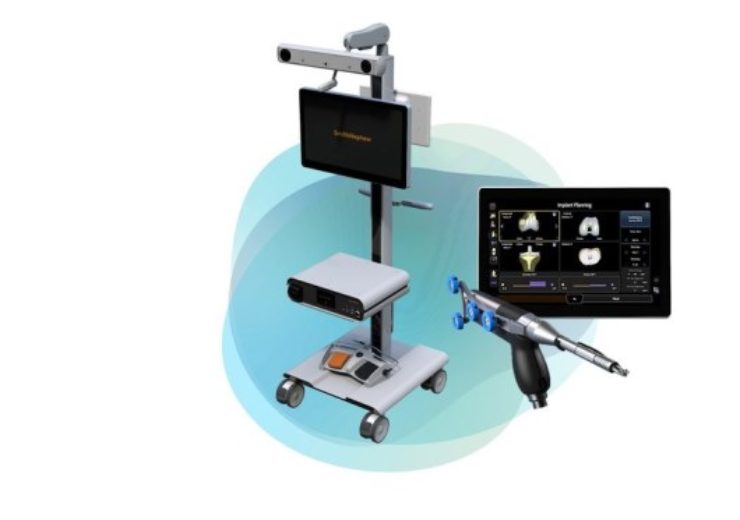The CORI surgical platform has been designed to be used for both unicompartmental knee arthroplasty and total knee arthroplasty

Smith+Nephew's CORI surgical system. (Credit: Smith & Nephew plc)
Medical technology firm Smith+Nephew has introduced new Real Intelligence brand of enabling technology solutions and CORI surgical platform.
The Real Intelligence brand has been designed to address clinical challenges across the continuum of care, including patient engagement, pre-operative planning, digital and robotic surgery, post-operative assessment and outcomes measurement.
Each solution in the Real Intelligence digital ecosystem will instruct the next phase of treatment, while over time will enable healthcare providers to use outcomes data to better inform patient-specific treatments.
Smith+Nephew has secured FDA 510(k) clearance for CORI surgical system
Smith+Nephew has secured 510(k) clearance from the US Food and Drug Administration (FDA) for the CORI surgical system.
Available for both unicompartmental knee arthroplasty and total knee arthroplasty, the small and portable CORI surgical platform is suitable for ambulatory surgery centres (ASCs) and outpatient surgery.
CORI features new camera technology that is more than four times quicker and provides more advanced technology with twice the cutting volume.
CORI, which is surgeon-controlled handheld robotics, features modular design that will enable to scale across the orthopaedic service line. Smith+Nephew stated that it will continue to launch new applications for this robotics platform.
Smith+Nephew orthopaedics president Skip Kiil said: “The Real Intelligence brand is a statement of how Smith+Nephew thinks, innovates, and reimagines surgery.
“The introduction of the CORI Surgical System’s handheld robotics, patient engagement tools, and outcomes measurement are the very first steps in a long-term strategy to advance orthopaedics using technology.”
In May, Smith+Nephew introduced Tula System for the placement of ear tubes in the US. The Tula System enables ENT surgeons to place ear tubes in an awake child during an office visit without the support of general anaesthesia.
